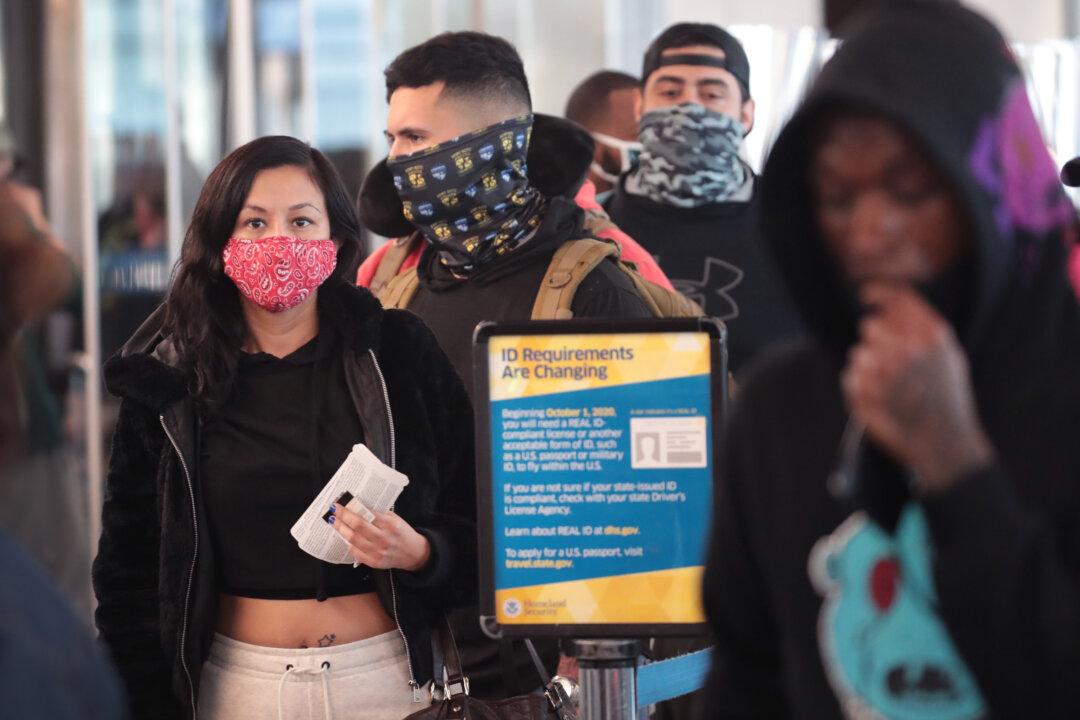The Supreme Court refused to hear an appeal on Oct. 31, leaving in place a federal appeals court ruling that allowed the Transportation Security Administration (TSA) to require the wearing of masks on airplanes, trains, and buses during the COVID-19 pandemic.
Although the TSA abandoned its mask mandate in April, the decision allows a Dec. 10, 2021, ruling by the U.S. Court of Appeals for the District of Columbia Circuit to remain on the books as a legal precedent that the government may rely upon in the future.





